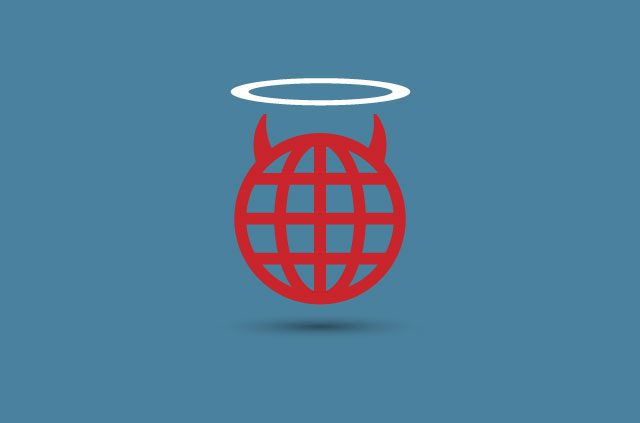
The difference between right and wrong is rarely black and white. When it comes to the big moral issues around internet privacy—from government surveillance to Facebook privacy—you might have your own opinions. But there are two sides to every story.
Let’s take a look at some of the current moral issues surrounding internet privacy.
The law’s guidance on internet privacy
Perhaps the most clear-cut moral issue relating to internet privacy is the use of spyware, and other malicious software, to steal private information and commit cybercrime.
In the U.S., Europe, and other countries, many cyber crimes have been outlawed – reflecting a consensus that stealing is wrong.
In the U.S., federal laws against cybercrime cover:
- Unfair or deceptive acts or practices
- Credit card fraud
- Fraud in connection with identification documents and information
- Fraud in connection with access devices
- Fraud in connection with computers
These laws make it illegal to invade someone’s privacy in order to steal from them. But they also outlaw hacking that isn’t malicious.
The morality of hacking
In May 2014, the Guardian reported that some of the world’s best security researchers were under threat of indictment for their efforts to expose vulnerabilities in internet infrastructure.
The U.S. Computer Fraud and Abuse Act outlaws hacking or breaking into private networks and systems. But internet security experts use hacking projects to uncover security flaws with the intention of fixing them. For example, the Critical.IO project discovered a weakness in the UPnP protocol that put up to 50 million computers at risk and fixed it—by hacking private computers.
Because of this and many similar incidents, lots of people believe that cybercrime laws should take into account the intent behind hacking, and not just the act itself.
The creep factor
Threats to privacy on the internet don’t only come from criminals. We also willingly give up our personal data on a daily basis, to online services like Facebook and Google.
In these cases, our data isn’t stolen, but many public concerns have arisen over how corporations use the data. For Facebook, holding the personal data of hundreds of millions of users has created an expectation among those users that the company should use it reasonably and protect their privacy. In the past few years, users have raised complaints about:
- Sharing of their private information on Facebook with third-party websites and applications, which could be used for data mining
- Confusing privacy settings that prevented many users from being able to control their privacy effectively
- Bugs that allowed third parties to invade users’ privacy, including one that enabled posting to any Facebook user’s wall
In none of these cases had Facebook broken privacy laws. But in each case, users found their information was being used in a way they did not expect and did not like. These disturbing and unexpected uses of our data are known as the “creep factor.”
The creep factor demonstrates that for companies to use private data ethically, they must be very clear about what they’re doing with it—even if what they’re doing with it is legal. Otherwise, people get a little creeped out.
Freedom of information or the right to be forgotten?
A key feature of the Internet that affects our privacy is its inability to forget. Web pages about individuals often stay online and searchable indefinitely, potentially affecting the subject’s reputation.
In May 2014, the European Union ruled that its citizens had a “right to be forgotten” and told Google it must delete "inadequate, irrelevant or no longer relevant" pages from its search results.
The case led to debates between those who believe privacy is a human right and those who prioritize freedom of information.
The downside of internet anonymity
While many internet privacy issues are about the exposure of identities, it’s also possible to use many online services anonymously. And often, that anonymity is used for evil.
Doxxing is the act of hacking someone’s personal information (including their address, contact information, and banking details) and posting it anonymously online. In August 2014, hackers posted social security information, PayPal details and other private information belonging to the game developer Phil Fish. Fish later announced he would be leaving the games industry.
Other doxxing victims have included Mel Gibson and the LAPD police chief. Perpetrators might argue that these people got what they deserved, but their actions are hard to defend.
Government surveillance: Necessary or evil?
The governments of most nations, including the U.S. and those in Europe, tap internet traffic as part of national security programs.
While revelations about NSA surveillance in the U.S. led to privacy concerns and talk of a “surveillance state,” many conservative thinkers believe “we need an invasive NSA” to protect against cyber intrusions.
As with all moral issues about internet privacy, there are two sides to the story—that of the person giving up their private data, and that of the person storing it.
What are your thoughts on internet surveillance and privacy online? Is there ever a good reason for a government to spy on its citizens? Or should they all leave us alone?
Let us know in the comments below!
Take the first step to protect yourself online. Try ExpressVPN risk-free.
Get ExpressVPN

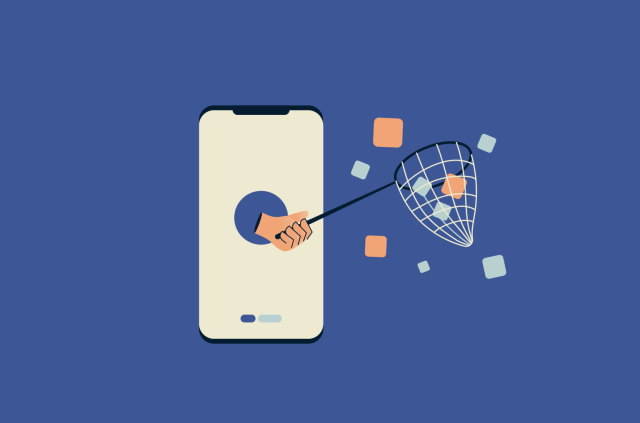
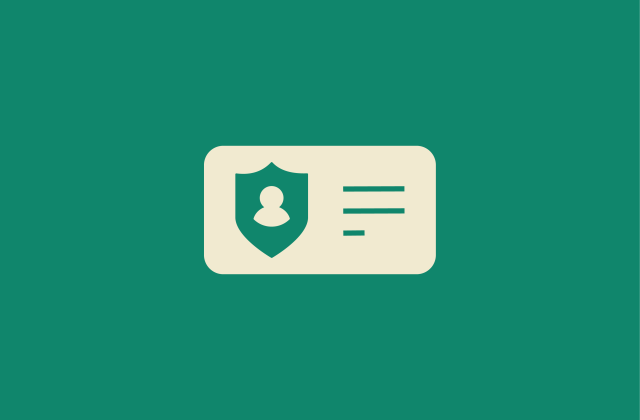
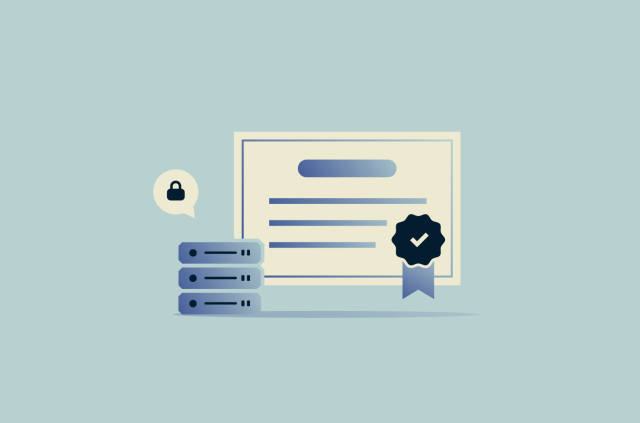
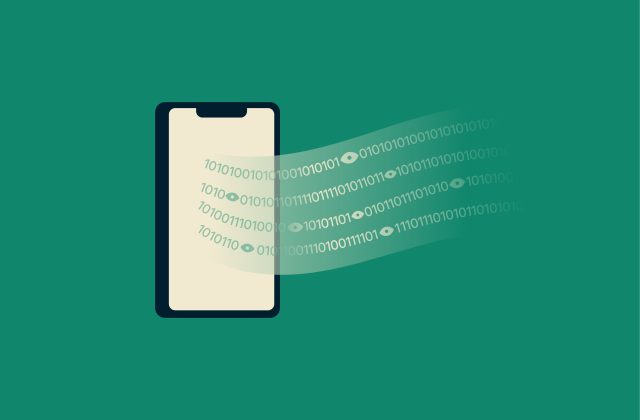
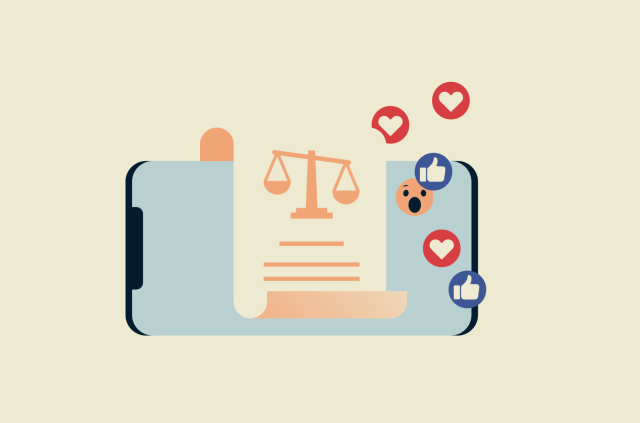
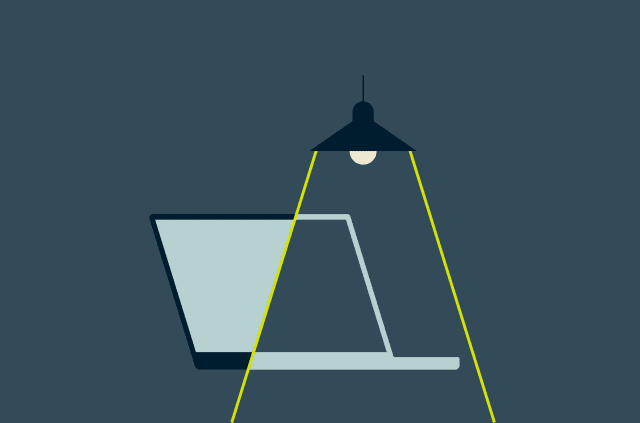
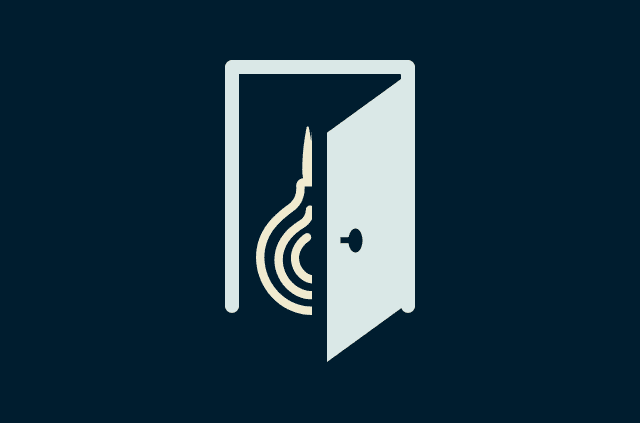
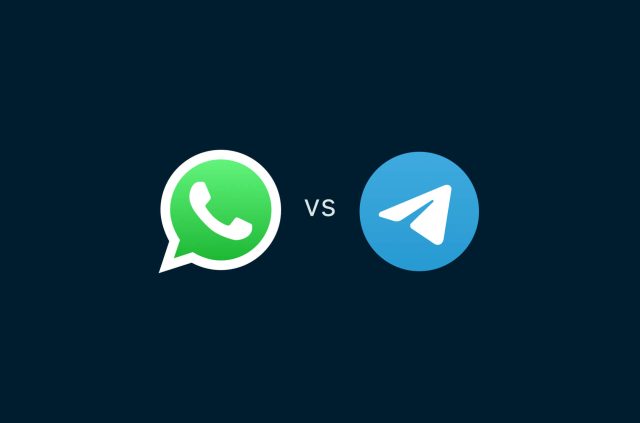

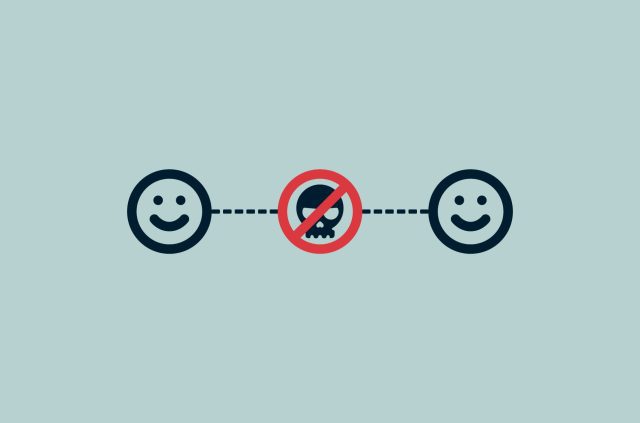
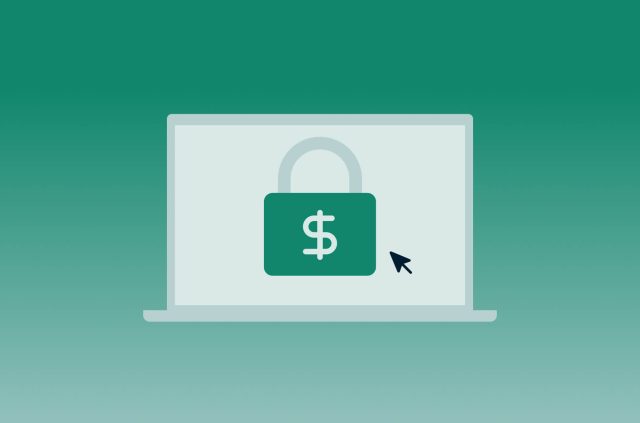
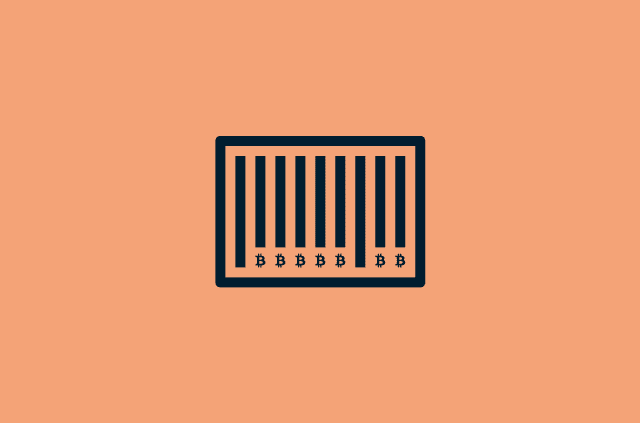
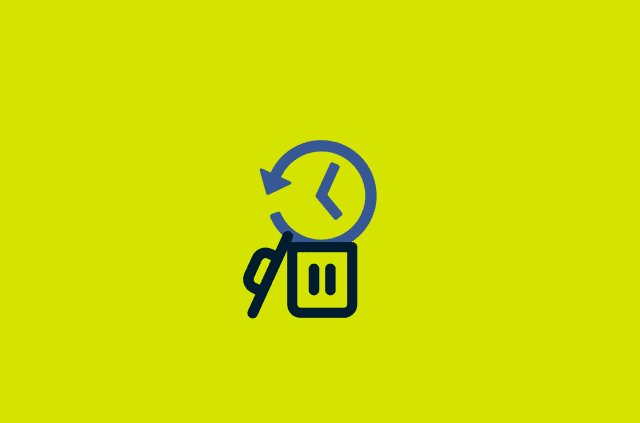




Comments
Can the government identify what I am searching and non governmental web pages visited when using a VPN like ExpressVPN?
Yes. Look up " The Eyes". Express VPN shares your info with the gov. Unsubscribing and heading to Nord. They don't fall under the 14 Eyes.
Hi Raphael, ExpressVPN is based in the BVI and not under the scrutiny of the draconian 14 Eyes group (you can read about it here). We also keep no logs, so there is nothing for anyone to see—even if they try.
Is Johnny 5 and Lexie a couple?
Xhub
Hi, my name is Elizabeth, and I believe the government needs to do spying for national security issues. I also would be full willing to allow them to access my account to catch a perpetrator, but are they ever caught? How does Mel Gibson know how this happened to him? How do you get help when you need it? I have spent nearly 7 years barley being functional on www and I know who is behind it, they stole my computer and promised they would ruin my life. I can’t even get a curtesy response stating the FBI received my inquiry. It’s a double whammy, and what is the average person supposed to do about it.? They need much more policing in the common sector, going after, computer eves droppers, that don’t pose a national threat, but are still ruining people’s lives. There is absolutely no help out there, and that needs to change.
Good
Hi holo
Veri good
Hellow!
I believe that each issue should be evaluated on a case by case basis. Example; govt should not be allowed to collect data from random people aka average citizen. But, if they have a known terrorist that can be stopped from harming average citizens. Then they should be able to gather. It should be weighed on a case by case basis.
How do I unsubscribe?
I need download
The need for cyber security systems to be in place is greater than ever before. However, the the methods being employed by our government are coming at the cost of civil liberties that would have our founding fathers ready to stage another revolt. This is our government declaring war on it's own people via overly invasive tactics. What happened to "Innocent till proven guilty"? In this day and age we are guilty until proven Innocent and malicious untill proven biegn. There is a huge problem with this tactic. Most of us live justly and believe in perpetuating good will towards others. None of us are perfect and make mistakes but we will be subject to strict enforcement when such methods are executed and therefore creating greater strain on our judicial system. This will make it easier for habitual offenders to elude the authorities by pure saturation. Not to mention what corrupt officers or agents can do will extremely personal data such as but not limited to stalking, harassing, dictating lives and hijacking our ability to make our own choices. They could corral us by choosing what we see on the website and manipulating the sites right before they appear on our screens, the could freeze or modify access to banking or funds, lock you out of public transportation, blacklist you from Uber or Lyft. How about running a mirror of windows while watching your every click. It's despicable. It's degrading and we need to stand at the forefront and draw a line the sand before it's too late!
I want the government to catch the bad guys. I do not want the government to intercept and store the data of millions of innocent people who are not suspected of any wrongdoing. The solution, then, is to target bad guys and stop mass surveillance.
Yes the us government should quit spying on us and leave us alone they have no right to spy on us unless we are comiting crimes
VPN to the best
yes
How do I go about canceling my account.
Hi Darryl, sorry that you want to leave us! Please contact the Support Team and they will get you sorted.
Nice App Express Vpn
Hello
Agree with your comments, governments should balance individuals privacy. What's concerning in Australia now is potential government intervention to access all of there citizens data. Hyped up by a number of egotistical politicians. Hope Express VPN can find a way to prevent this invasion of privacy!
ABSOLUTELY NO EAVS DROPPING!!!! I remember a time when the internet was in its infancy, you could surf all sites with no restrictions, no sign-ups. Today is a living nightmare! Google own all data now, they don't give a rats ass about personal privacy, even though there are disclaimers to the contrary. It's fast becoming an Orwellian nightmare, and if you can't see that by now, there is no hope for you.
Governments' invasive snooping is definitely scary. Computers and bureaucracy have no decency and no conscience, they only do what they are programmed to do without caring in the least for the outcome. And even if originally there are only good intentions and no shady planning behind it (which might be debated at length), no program longer than ten lines of code is flawless. Yet I've seen no mention here of another pretty scary threat that has spread like wildfire in the last years: a Windows 10 that has been practically forced down out throats without asking, and that according to most sources is a mighty piece of spyware on its own that sends home all kind of data most users still merrily regard as private. Now I'm not implying that Microsoft is as powerful, menacing or intimidating as a government... or am I?